The Master Plan Process
Initially, none of these sites were selected to be included in the National Park Service Program, so it was determined a master plan and trail study was needed to provide a path forward for the state to promote and protect these valuable assets.
The design team selected for the RSTS is led by Earth Design, Inc., an environmentally focused landscape architecture firm located in Greenville, South Carolina. Their firm takes a progressive approach to Master Planning, with a focus on environmental stewardship through ecological design. For this project, they partnered with Arnett Muldrow & Associates, a planning firm committed to making better communities, with work over 450 communities in 40 states and four countries.
Their team has worked on similar projects, including the Black River Water Trail and Park Network, which was a similar regional planning project where we collaborated with state parks to create an innovative master plan for a new state park with a 70-mile water trail and multiple park parcels.
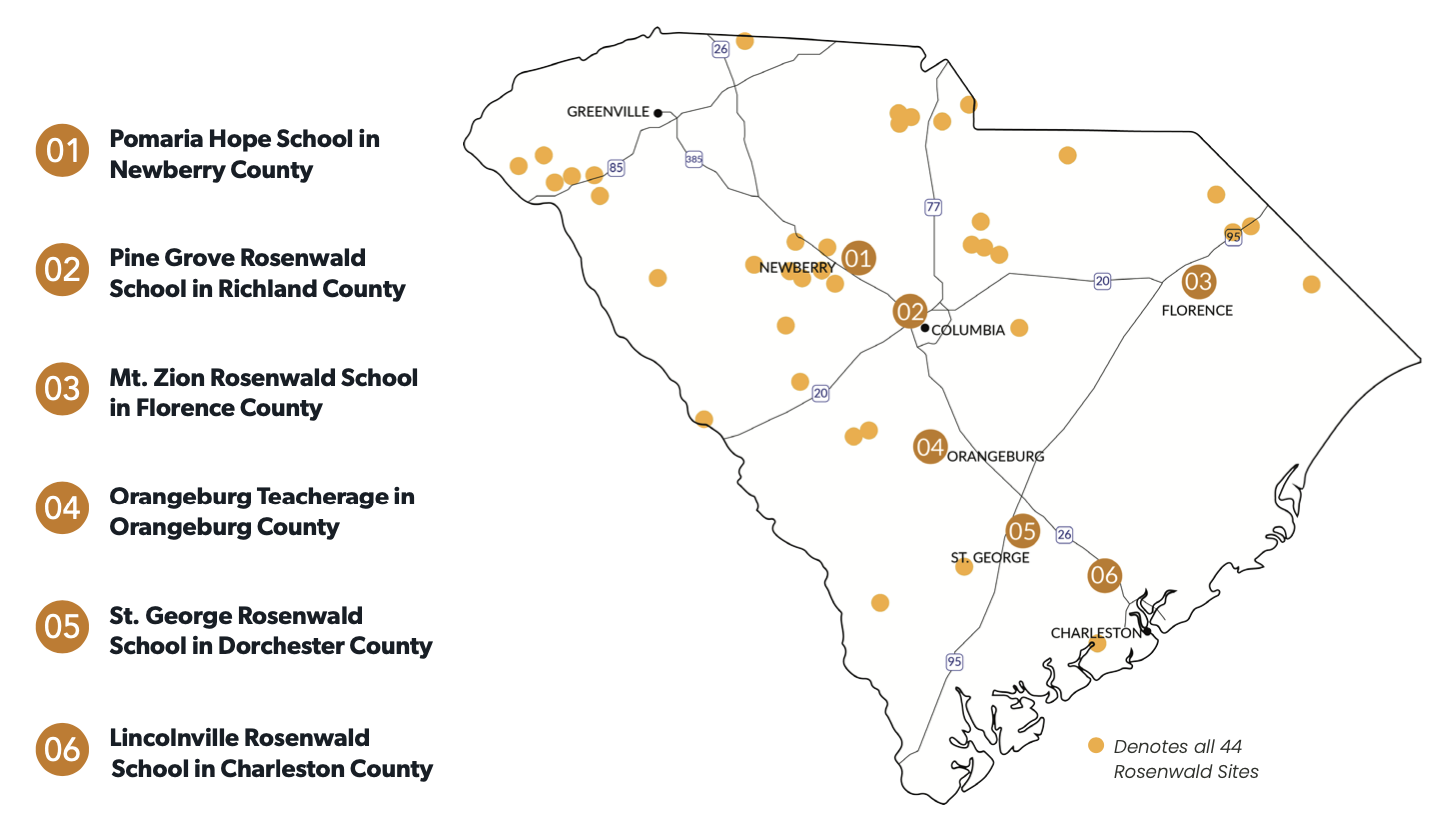
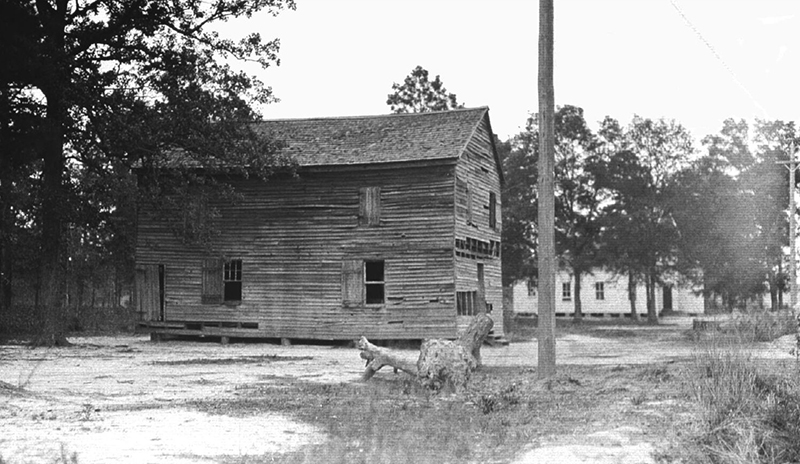
The Earth Design team will aim to create a trail network that can be expanded upon, as there are a total of 44 Rosenwald School sites in South Carolina with buildings, and there were close to 500 South Carolina projects that received funding from this program.
The sites included in the RSTS are the St. George Rosenwald School in Dorchester County, Pine Grove Rosenwald School in Richland County, Lincolnville Rosenwald School in Charleston County, Orangeburg Teacherage in Orangeburg County, Pomaria Hope School in Newberry County, and Mt. Zion Rosenwald School in Florence County. Community engagement, research, and interviews will be conducted during visits to the sites and will be documented in this study.
The Earth Design team will work with a steering committee that is composed of community stakeholders, historians, The WeGOJA Foundation, Conservation Voters of South Carolina, and South Carolina Parks, Recreation & Tourism.
Timeline
The planning for this project will occur over the next 18 months, with the target completion date of June 2025. At the time of completion, the study will deliver a proposal that South Carolina State Parks can use to develop an initial trail that highlights the rich history of our state’s Rosenwald Schools.

The Enduring Legacy of Rosenwald Schools
Unearthing Educational History in the Jim Crow South
“I am extremely excited about working with dynamic partners to ‘capture memories of select Rosenwald School alumni’ and friends. My formal education, work experience, and personal love of documenting underserved groups provide me with a knowledge base to capture those memories.
Prior to joining the University of South Carolina in 1999, I was actively engaged in interviewing educators in NC, SC, GA, and VA for my dissertation on African American women school teachers during the Jim Crow era. My major field of study is African American Education in the South. Since joining USC, I have continued collecting oral interviews and have worked with several institutions, such as Georgetown Public Library and NEH, on two three-year projects. Short-term oral history projects have included Beaufort, Lincolnville, Greenville, Eastover, and Columbia.
Rosenwald Schools are a cornerstone of U.S. History. Their histories help us understand ways in which public education in the United States is shaped by competing economic, political, and ideological interests and the ways in which schools reinforce and reshape the larger society. The stories of African American communities’ efforts to secure funding and maintain these schools are at the heart of the cornerstone.
This study builds on previous work done by others, such as the SC African American Heritage Commission, SC Department of Archives and History, and the University of South Carolina Public History Program. South Carolina had the third-highest number of schools. Approximately 500 were built between 1917-1932. This project is an important next step in South Carolina, reclaiming stories that will allow for a fuller understanding of the struggle to access quality education and sharing with a larger audience the importance of the journey through the voices of those who participated.”
– Dr. Valinda W. Littlefield, Project Oral Historian
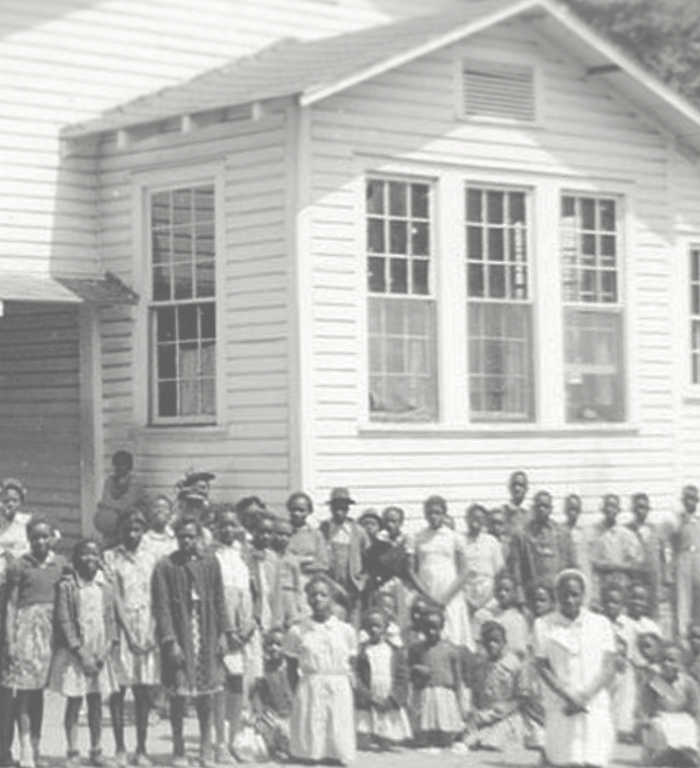
Lincolnville Elementary: Founding Faith and Knowledge
The Town of Lincolnville was founded by Rev. Richard H. Cain and six other freed Black men in 1867 and became incorporated in 1889. The two primary concerns of the founders were to establish a strong foundation of faith and education as fertile soil for the growth and prosperity of the early settlers and their descendants.
In 1923, Lincolnville Elementary School, a Rosenwald School, was built. A wooden structure on four acres of land consisting of four classrooms, an office, a kitchen, and an auditorium on the corner of Board and Front Streets in Lincolnville. This school would become the center of community activities and organizing, educational excellence, and performing arts. In spite of filthy, used books from the local, white school and lower pay, the small staff of schoolteachers produced global, national, regional, and local leaders in every field–educators, physicians, attorneys, engineers, scientists, academic scholars, veterans, farmers, etc.
In 2023, former students of Lincolnville’s Rosenwald School gathered from far and near to celebrate the 100th Anniversary of Lincolnville Elementary, A Rosenwald School. Inclusion in a Rosenwald State Park Network will hopefully preserve that legacy for another 100 years.
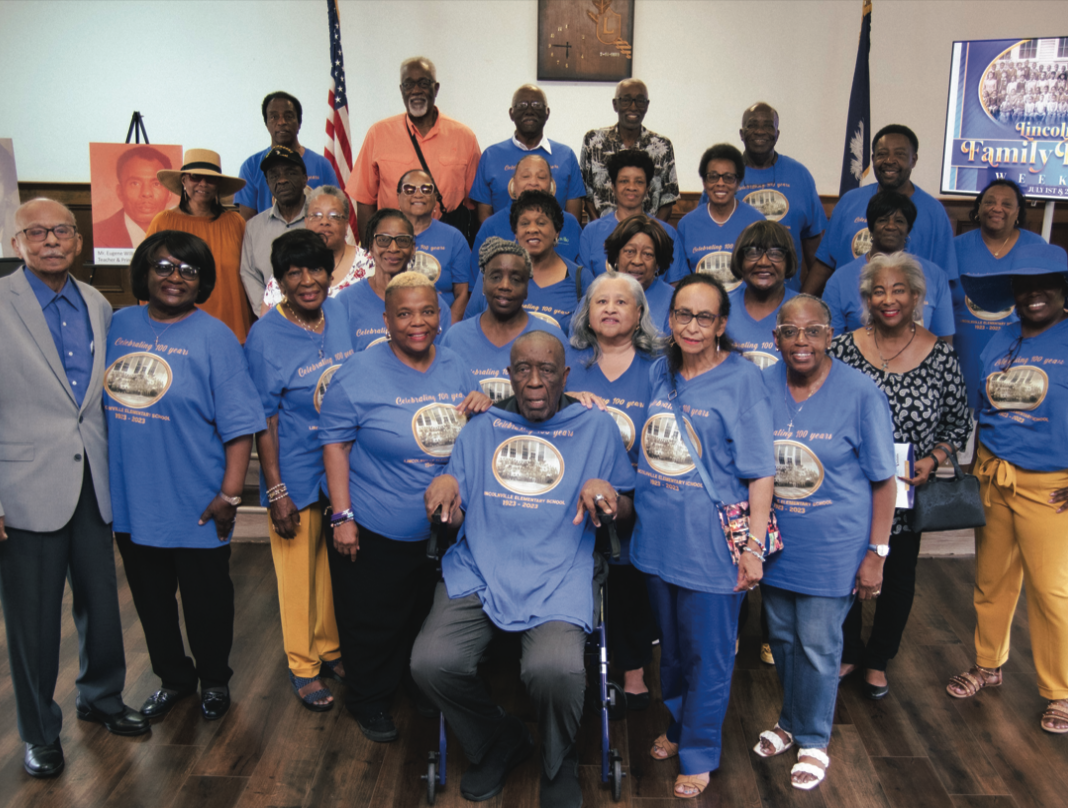
The Pine Grove School: Community-Led Learning
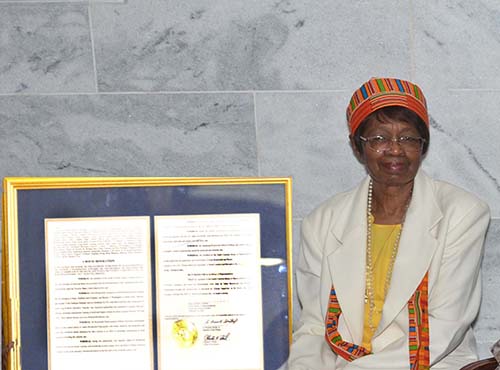
“I am fortunate enough to have had the opportunity and privilege of beginning my formal educational experience at the Pine Grove School, Rosenwald School.
My fondest memories of attendance are the knowledge gained, the fellowship of other students, who were mostly relatives and community members, and the love, knowledge, and compassion of the teachers, Mrs Thelma Bellinger and Ms McIver.
We were taught in a two-room building that was maintained by community members. The teachers often used the students who were a little more knowledgeable in a certain subject to assist others, as there were three grades under the direction of each teacher.
This Rosenwald trail can be used to reinforce the principles found in rural African American communities. The principles of caring for and educating each other. This Trail can also highlight the diverse and numerous communities in which the schools were located. Our forefathers saw education as a means to lead the future generation to a better life than they had endured.
Because of the foundation offered by the Pine Grove School, and our mother, my sisters and I later attended Allen University and became Educators in the public schools of South Carolina and Florida. We are the legacy of Rosenwald Schools.”
– Ms. Iris Taylor Simpkins
Collaboration
Meet the organizations behind the RSTS.
This project is made possible through a powerful collaboration with partners dedicated to conservation and historical preservation:
The WeGOJA Foundation
Conservation Voters of South Carolina
Earth Design, Inc.
Mount Zion Rosenwald School
Pine Grove Rosenwald School
SC Department of Archives and History
SC Department of Parks, Recreation, and Tourism
St. George Rosenwald School
The Great Branch Teacherage
The Hope School
The Lincolnville Preservation and Historical Society
